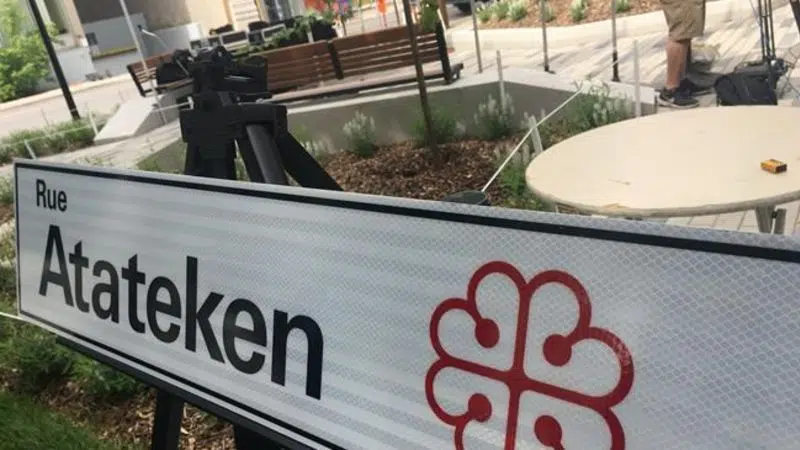
Montreal street renamed to erase tribute to Amherst, honour Indigenous history
Montreal removed the name of British general Jeffery Amherst’s from its street map on Friday in favour of Atateken Street — a Mohawk word that means brotherhood.
City and Indigenous leaders were on hand Friday to announce the name change that will erase traces of the British general who openly expressed a desire to eradicate Indigenous populations and advocated using blankets laced with smallpox to quell their rebellions.
“Today we are removing General Jeffery Amherst from our past — we’re erasing that part of our past, both your past and ours — but we won’t forget,” said Ghislain Picard, head of the Assembly of First Nations of Quebec and Labrador.
“Now that Amherst Street has a new name, the spirit of our peoples, the spirit of our ancestors can now rest in peace.”


